Introduction
Air conditioning systems are essential for maintaining indoor comfort, especially in extreme weather conditions. However, AC units can break down unexpectedly, leaving homeowners and businesses struggling to stay cool. 24-hour air conditioning repair services ensure that help is available whenever an emergency arises, preventing discomfort and potential damage to the system.
Common AC emergencies that require immediate attention include:
- AC not cooling – The system blows warm air or fails to reach the desired temperature.
- Refrigerant leaks – Low refrigerant levels can cause the system to malfunction.
- Electrical failures – Issues with wiring, fuses, or the capacitor can lead to complete breakdowns.
- Frozen evaporator coils – Ice buildup prevents proper airflow, reducing efficiency.
- Unusual noises or burning smells – These indicate internal mechanical issues or electrical problems.
Access to a 24-hour AC repair service means that no matter when these issues occur, professional help is just a call away, ensuring quick solutions to restore indoor comfort.
Why 24 Hour Air Conditioning Repair Services Are Essential
A sudden AC breakdown can be stressful, especially during extreme weather conditions. 24-hour AC repair services are crucial for restoring cooling performance without long delays. Here’s why they are essential:
Unexpected AC Breakdowns Can Happen Anytime
Air conditioners work continuously during peak seasons, increasing the chances of an unexpected failure. Common reasons for sudden AC breakdowns include:
- Overheating compressors – When the system runs continuously, it can overheat and shut down.
- Blocked air filters – A dirty filter can restrict airflow, causing the unit to freeze up or overwork.
- Electrical malfunctions – Faulty wiring, tripped breakers, or capacitor failures can prevent the AC from turning on.
Since breakdowns can happen at any hour, 24-hour AC repair services ensure that professional help is available even at night or on weekends, preventing prolonged discomfort.
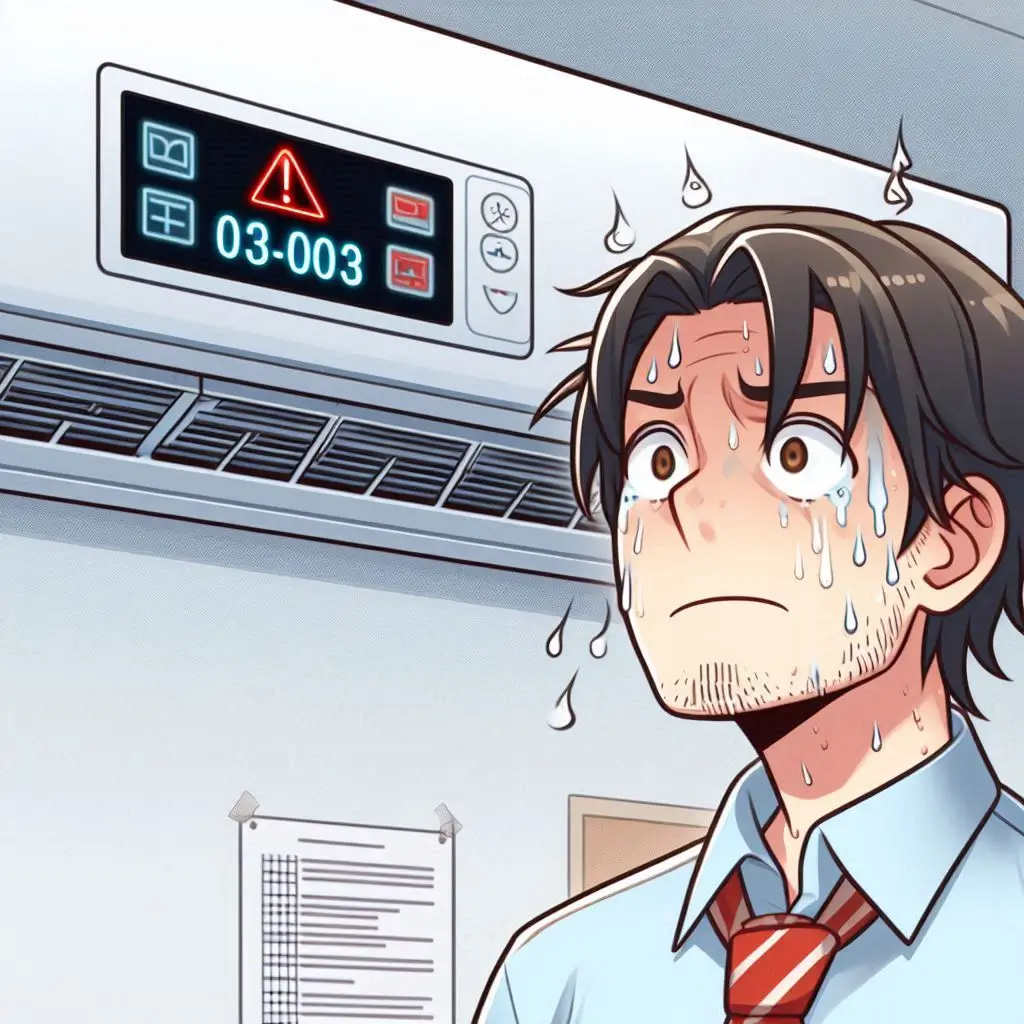
Importance of Immediate Response in Extreme Weather
During summer heatwaves or winter cold snaps, an AC failure is more than just an inconvenience—it can pose health risks.
- For elderly individuals, children, and pets, extreme temperatures can lead to heatstroke or hypothermia.
- Businesses, such as restaurants and healthcare facilities, rely on air conditioning to ensure food safety and patient comfort.
- Delays in AC repair can lead to mold growth, humidity issues, and further damage to the unit.
Having a 24-hour AC repair service available ensures that no matter when the system fails, it can be fixed immediately to restore safe and comfortable indoor temperatures.

How 24-Hour Services Prevent Costly Damage
Ignoring AC problems or delaying repairs can lead to higher repair costs and even permanent system failure. Here’s how immediate AC repair can save money:
- Prevents compressor damage – Running an AC with low refrigerant or poor airflow can overwork the compressor, leading to expensive repairs.
- Avoids electrical hazards – Faulty wiring or burning smells can indicate electrical problems that may lead to fires if left unattended.
- Reduces energy waste – A malfunctioning AC unit consumes more energy, leading to higher utility bills.
By addressing AC issues immediately, 24-hour repair services not only restore comfort but also prevent long-term damage, extending the lifespan of the air conditioning system.
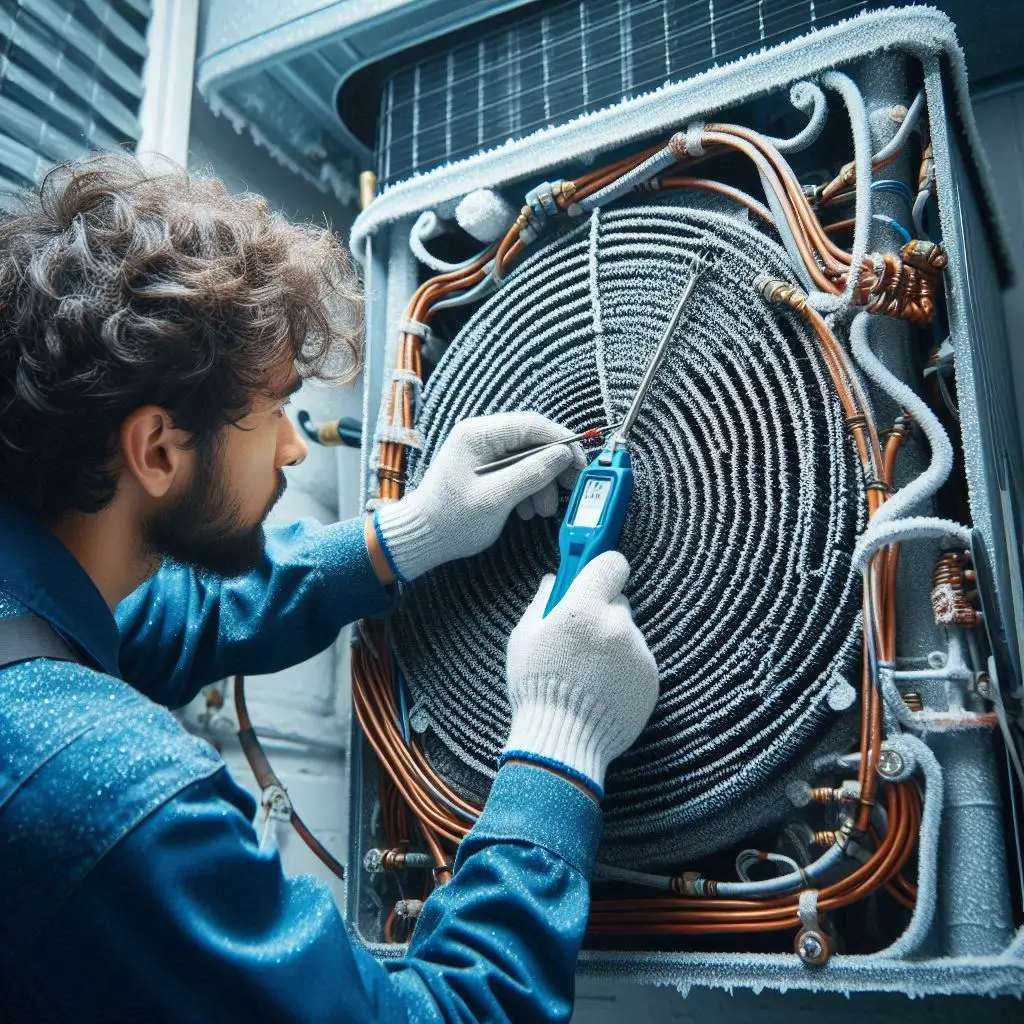
Common Air Conditioning Emergencies That Require Immediate Repair
Air conditioning emergencies can occur without warning, especially during peak summer months when AC units work the hardest. When your system stops working efficiently or breaks down entirely, it can lead to discomfort, health risks, and increased repair costs. Recognizing these emergencies early and calling a 24-hour air conditioning repair service can prevent further damage and restore cooling performance quickly.
Below are the most common AC emergencies that require immediate professional attention.
AC Not Cooling or Blowing Warm Air
One of the most frustrating air conditioning emergencies is when the system blows warm air or fails to cool the space properly. This issue can stem from multiple causes:
- Thermostat Issues – Incorrect settings or a malfunctioning thermostat can prevent the AC from cooling effectively.
- Dirty Air Filters – A clogged filter restricts airflow, making it difficult for the system to circulate cool air.
- Low Refrigerant Levels – When refrigerant levels drop, the AC loses its cooling ability.
- Blocked Condenser Unit – Dirt, debris, or plants around the outdoor condenser can obstruct heat dissipation, reducing efficiency.
- Compressor Failure – A failing compressor cannot regulate the refrigerant properly, leading to warm air circulation.
Ignoring these issues can increase energy bills and cause permanent system damage, making it crucial to call for emergency AC repair as soon as the problem arises.
Refrigerant Leaks and Low Refrigerant Levels
Refrigerant is essential for an air conditioner to function correctly. It absorbs heat from indoor air and releases it outside. When refrigerant levels drop due to leaks or improper charging, the system struggles to cool efficiently.
Signs of a Refrigerant Leak:
- AC blowing warm or lukewarm air even at the lowest setting.
- Hissing or bubbling sounds near the AC unit, indicating a leak.
- Ice formation on refrigerant lines or evaporator coils.
- Increased cooling time, making the system run longer than usual.
Why Immediate Repair Is Necessary
- Leaking refrigerant is harmful to the environment and should be handled by professionals.
- Low refrigerant levels force the compressor to overwork, leading to costly damage.
- Indoor humidity increases, causing discomfort and potential mold growth.
A professional 24-hour AC repair technician can detect and fix leaks, recharge refrigerant, and ensure the system is properly sealed to prevent future issues.
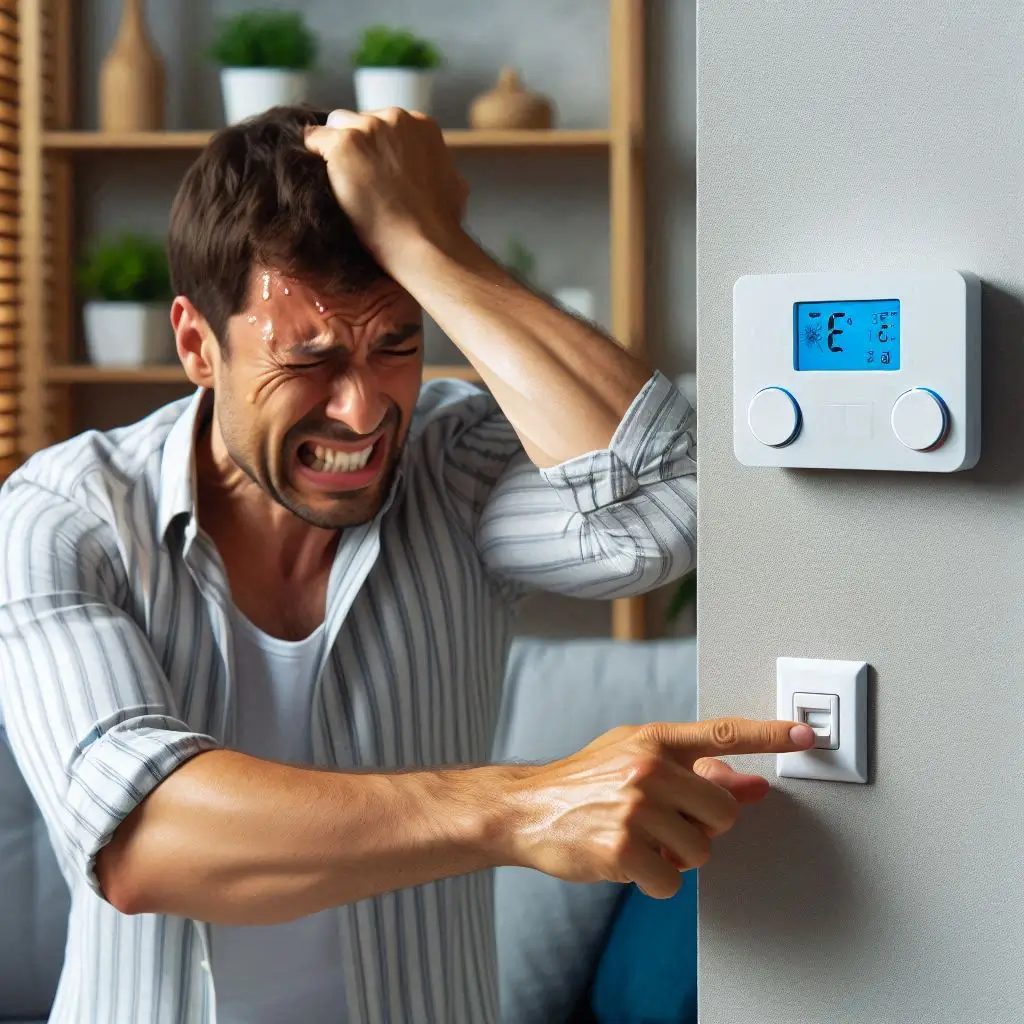
Frozen Evaporator Coils or Condenser Issues
Frozen evaporator coils indicate that the system is not absorbing heat effectively. This can lead to reduced cooling performance or complete system shutdown if left unresolved.
Causes of Frozen Evaporator Coils:
- Dirty Air Filters – Restricted airflow prevents the coils from exchanging heat, causing ice buildup.
- Low Refrigerant Levels – Insufficient refrigerant reduces pressure, leading to coil freezing.
- Blocked Air Vents or Ducts – Poor airflow prevents warm air from reaching the evaporator coils.
Condenser Issues That Require Immediate Repair:
- Dirty Condenser Coils – Accumulated dirt and debris reduce the unit’s ability to release heat.
- Faulty Condenser Fan – A broken fan motor or blades prevent proper heat dissipation, causing the AC to overheat.
How Immediate Repair Prevents Further Damage:
- Prevents permanent compressor failure, which is one of the most expensive repairs.
- Avoids higher energy bills due to the AC running inefficiently.
- Restores cooling performance before the system shuts down completely.
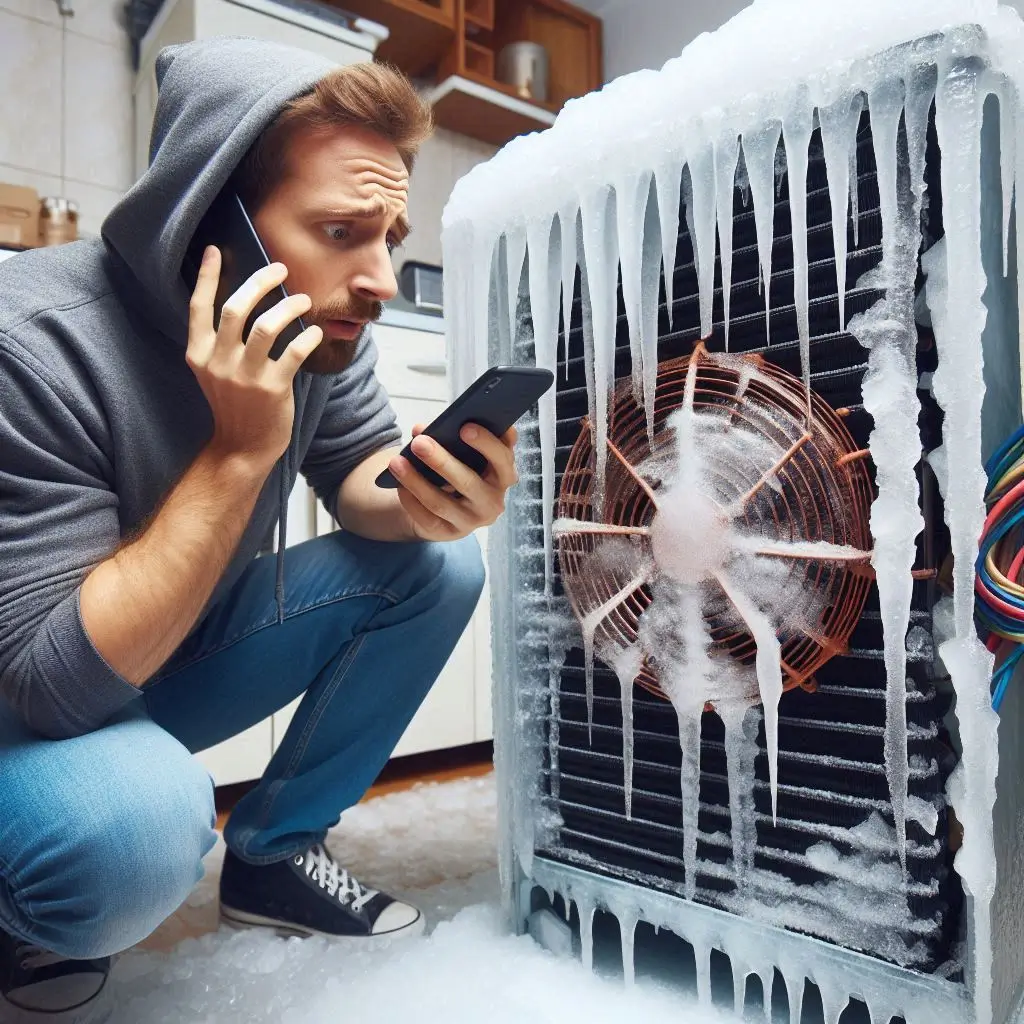
Electrical Failures and Faulty Wiring
Electrical problems can be one of the most dangerous AC emergencies, potentially leading to system failure or fire hazards. A malfunctioning electrical component can prevent the AC from turning on, cause inconsistent cooling, or result in complete system shutdown.
Common Electrical Issues in Air Conditioners:
- Tripped Circuit Breaker – Overloaded circuits can trip the breaker, shutting down the AC.
- Loose or Damaged Wiring – Faulty wiring can cause intermittent power loss and increase fire risks.
- Failed Capacitor – The capacitor provides the initial jolt of electricity to start the motor. A failing capacitor leads to a non-starting AC or frequent shutdowns.
- Burnt or Corroded Contactors – These regulate the electrical flow in the AC. If they fail, the compressor or condenser fan may stop working.
Why Electrical Issues Require Urgent Repair:
- Can lead to fire hazards if left unaddressed.
- Causes the system to overheat and shut down unexpectedly.
- May result in a complete unit replacement if not fixed in time.
If you notice burning smells, sparking, or flickering lights when the AC is running, turn off the unit immediately and call for emergency repair.
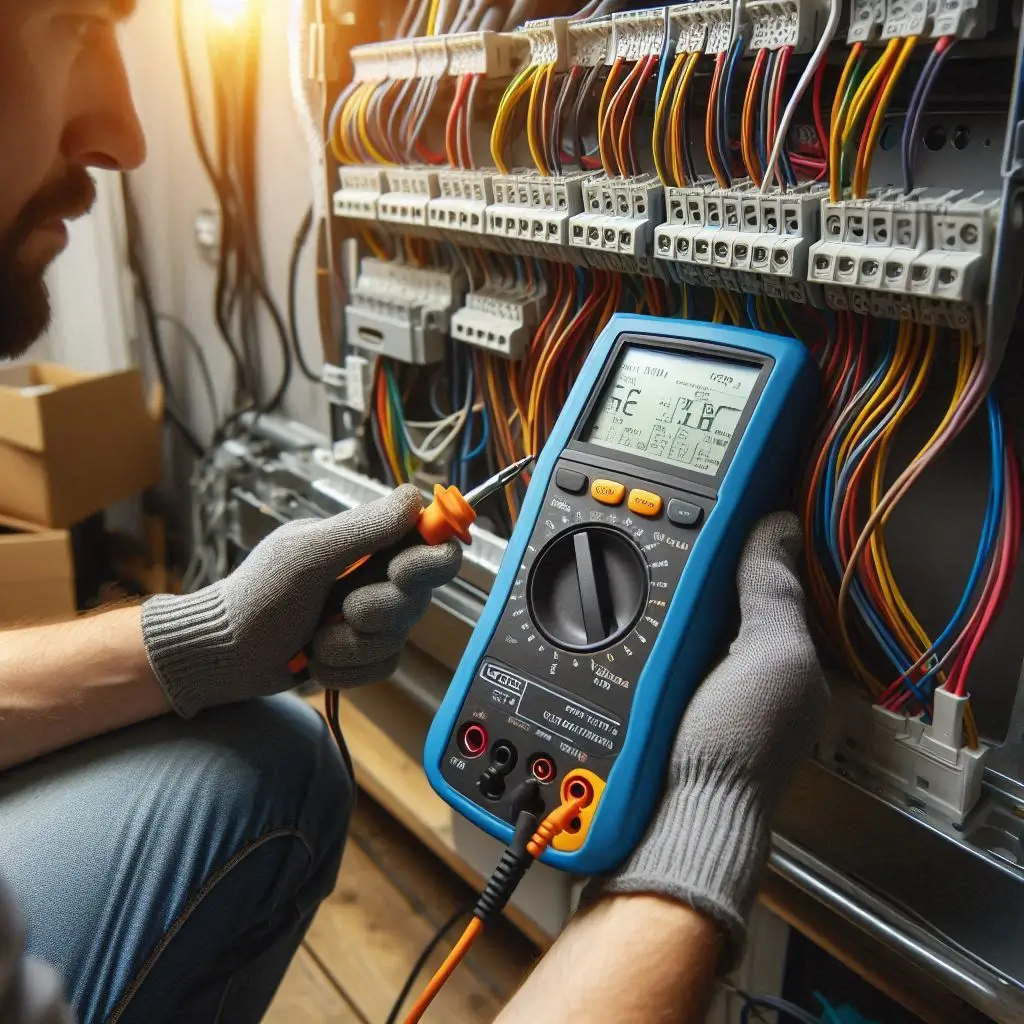
What to Do While Waiting for Emergency AC Repair
When your air conditioner breaks down unexpectedly, waiting for 24-hour air conditioning repair can be frustrating, especially during extreme heat. However, taking the right steps while waiting for a technician can prevent further damage, ensure safety, and maintain comfort in your home. Here’s what you should do in the meantime.
Turn Off the AC to Prevent Further Damage
One of the first things you should do when your air conditioner stops working properly is to turn it off. Continuing to run the AC when it’s malfunctioning can lead to more extensive damage and higher repair costs.
Why Turning Off the AC Is Important:
- Prevents compressor damage: If the system has a refrigerant leak or electrical issue, running it can burn out the compressor, leading to expensive repairs or replacement.
- Stops ice buildup: If your evaporator coils are frozen, keeping the AC on will only worsen the problem. Turning it off allows the ice to melt naturally.
- Avoids electrical hazards: If you notice burning smells, sparks, or flickering lights, the issue could be electrical. Shutting down the AC prevents potential fire hazards.
How to Properly Shut Down Your AC:
- Turn off the thermostat – Switch it to “Off” mode instead of “Cool.”
- Flip the circuit breaker – Locate your electrical panel and turn off the AC breaker to ensure no power flows to the unit.
- Wait for the technician – Avoid restarting the system until a professional inspects and repairs the issue.
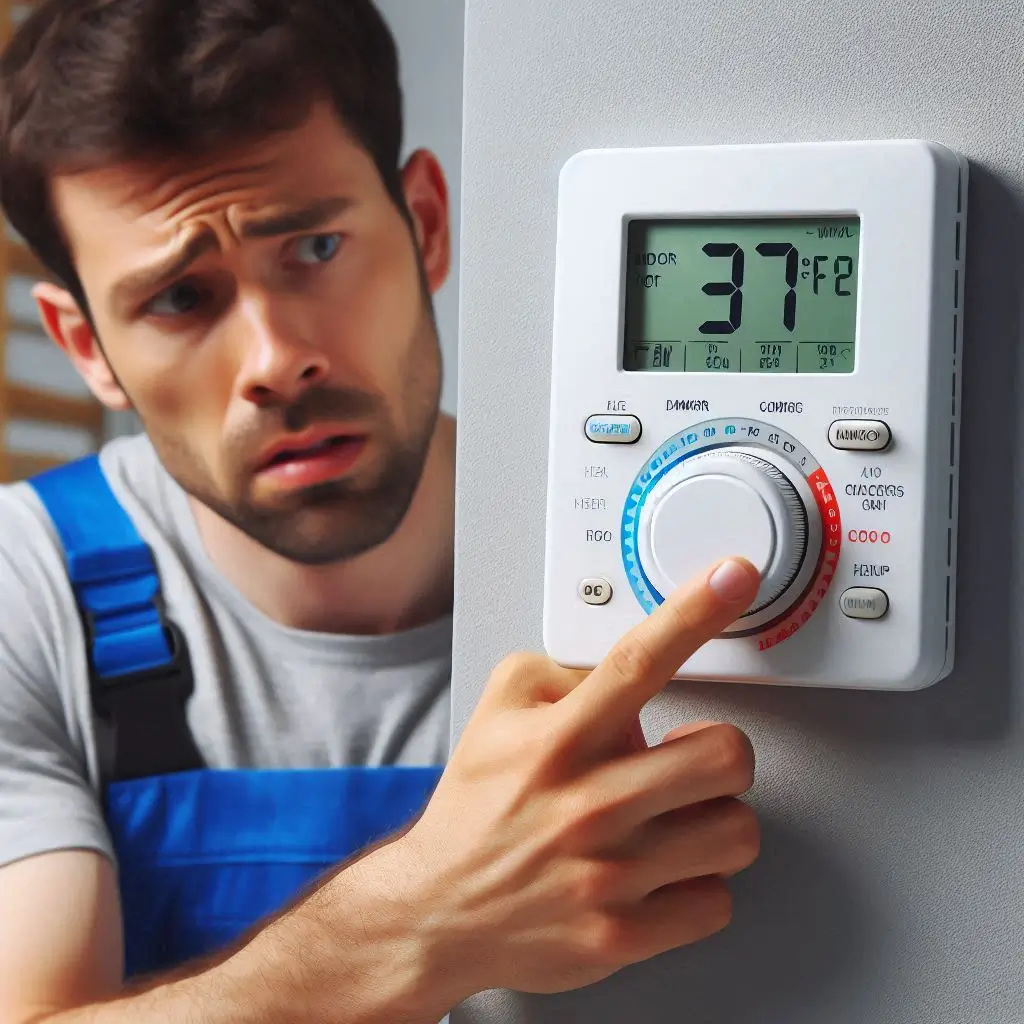
Check the Thermostat and Circuit Breaker
Before assuming your AC has a major problem, it’s essential to check the thermostat and circuit breaker. Sometimes, a simple issue like an incorrect setting or a tripped breaker can cause the system to stop cooling.
How to Troubleshoot Your Thermostat:
- Ensure it’s set to “Cool” mode – If it’s set to “Fan” or “Heat,” your AC won’t cool.
- Lower the temperature by 5 degrees – If the system doesn’t start, there could be a deeper issue.
- Replace the batteries – If your thermostat runs on batteries, weak or dead ones can prevent it from functioning.
Checking the Circuit Breaker:
Your AC might stop working if the breaker trips due to an electrical overload. Follow these steps:
- Locate your home’s electrical panel (usually in the garage, basement, or utility room).
- Check if the breaker labeled “AC” is in the OFF position or stuck in the middle.
- If tripped, switch it off and then back on to reset it.
⚠️ Important: If the breaker trips again immediately, do not reset it repeatedly. This indicates a serious electrical problem that requires professional repair.
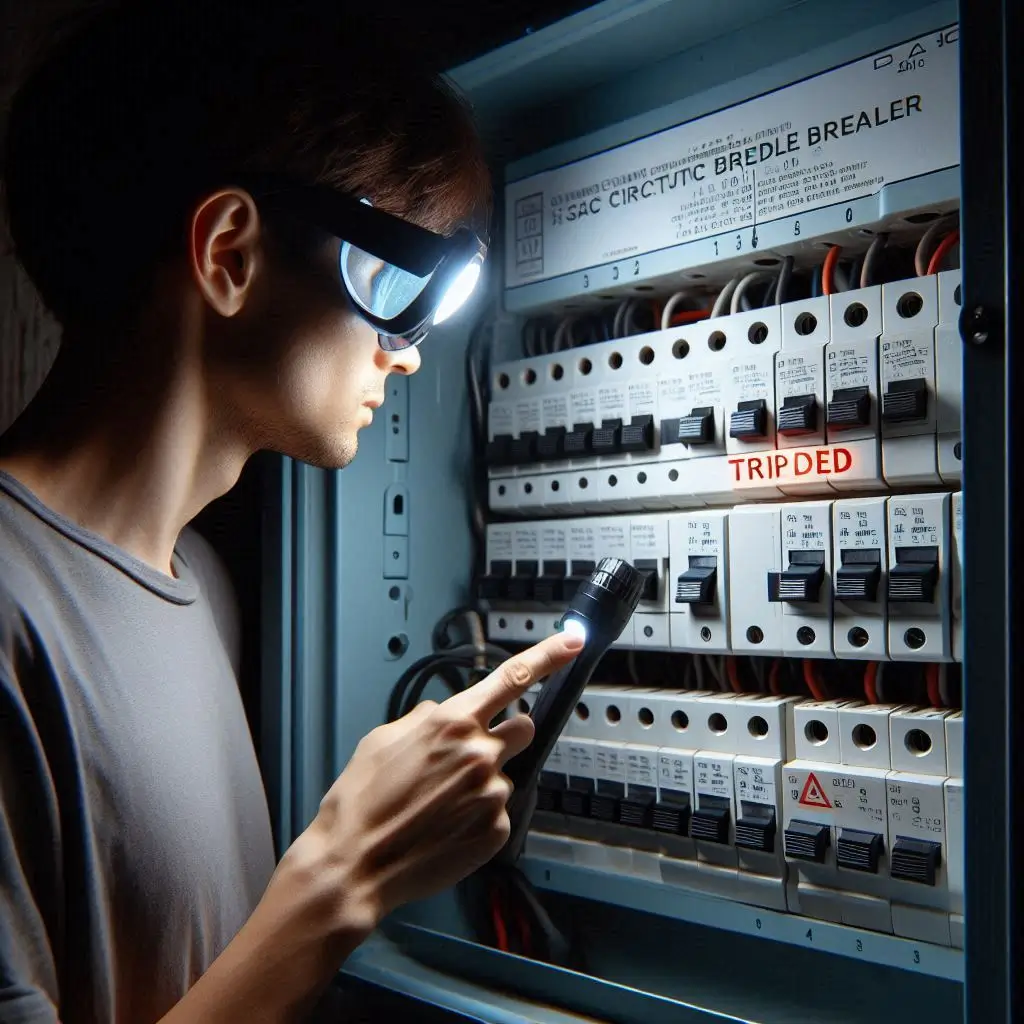
Improve Ventilation to Maintain Comfort Temporarily
When your AC is out, keeping your home as cool and comfortable as possible is crucial, especially in extreme heat. Improving ventilation can help you stay comfortable until your emergency AC repair technician arrives.
Ways to Maintain a Cooler Indoor Environment:
- Use Ceiling and Box Fans: Position fans strategically to circulate air throughout the room.
- Close Blinds and Curtains: Blocking direct sunlight prevents excess heat from entering your home.
- Open Windows for Cross Ventilation: If it’s cooler outside, open windows on opposite sides of the house to create airflow.
- Stay Hydrated and Avoid Heat-Generating Activities: Drink plenty of water and avoid using the stove, oven, or other heat-producing appliances.
If the Heat Becomes Unbearable:
- Move to a Cooler Room: If your home has a basement or a well-insulated area, it may stay cooler.
- Consider Leaving Temporarily: If indoor temperatures rise too high, especially for young children or elderly family members, consider staying with a friend or visiting an air-conditioned location like a mall or library.
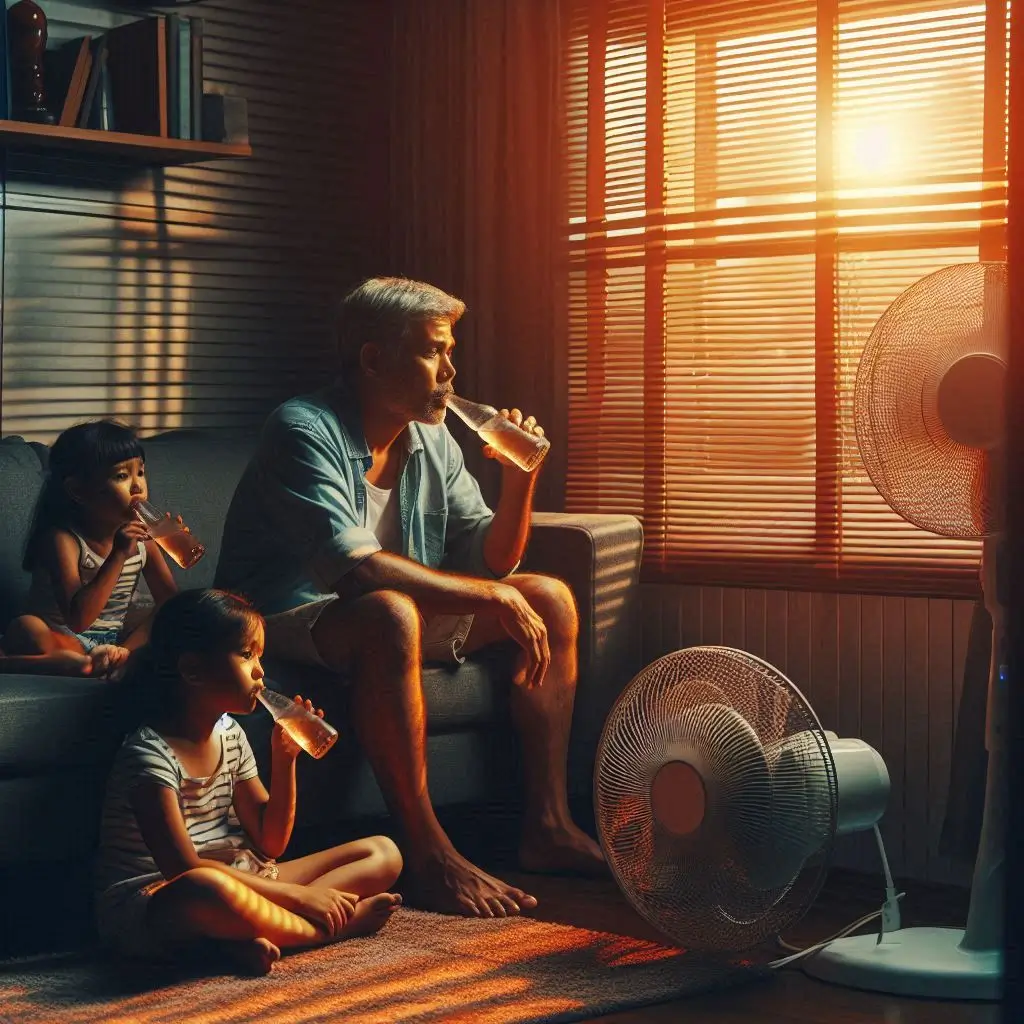
How to Choose a Reliable 24 Hour Air Conditioning Repair Service
When your air conditioner breaks down unexpectedly, finding a reliable 24-hour air conditioning repair service is crucial. With many options available, knowing how to identify a trustworthy and efficient company ensures you get fast, high-quality repairs without overpaying. Here’s what to look for when selecting an emergency AC repair service.
Check for Licensed and Certified Technicians
Hiring licensed and certified HVAC technicians ensures that the repair work is done correctly and safely. Unqualified or unlicensed technicians may provide subpar services, leading to frequent breakdowns and costly repairs in the future.
Why Licensing and Certification Matter:
Ensures compliance with safety standards – Licensed technicians follow state and local HVAC regulations, reducing safety risks.
Verifies expertise and training – Certification means they have the necessary skills to diagnose and repair complex AC issues.
Guarantees proper refrigerant handling – Certified technicians know how to handle refrigerant leaks and electrical components safely.
How to Verify a Technician’s Credentials:
- Ask for their license number and check it with your state’s licensing board.
- Look for EPA (Environmental Protection Agency) certification, which is required for handling refrigerants.
- Ensure the company is bonded and insured, protecting you from liability in case of accidental damage.
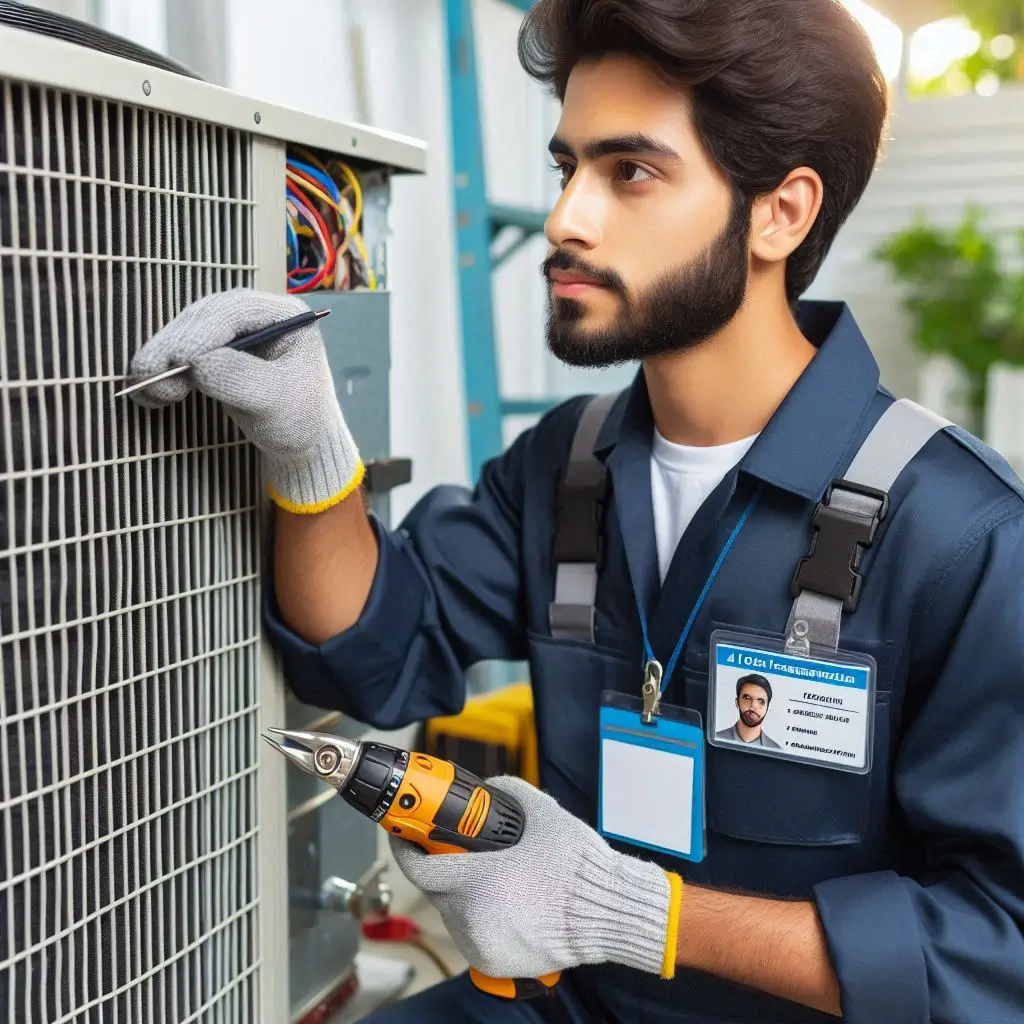
Read Customer Reviews and Testimonials
Checking customer reviews and testimonials gives you insight into the company’s reliability, professionalism, and service quality. A reputable 24-hour air conditioning repair service should have a track record of positive customer experiences.
Where to Find Genuine Customer Reviews:
Google Reviews – Search for the company name and check its Google My Business listing.
Yelp and Better Business Bureau (BBB) – These platforms provide detailed customer feedback and business ratings.
Company Website Testimonials – Read what previous customers say about their experiences.
Red Flags to Watch Out For:
Too many negative reviews about delayed response times – If multiple customers complain about long wait times, it’s a bad sign.
Hidden charges and upselling complaints – Avoid companies that frequently overcharge or suggest unnecessary repairs.
Lack of professionalism – If customers report rude technicians or poor workmanship, look for another provider.

Look for Fast Response Times and Service Guarantees
When dealing with an AC emergency, every minute counts. A good 24-hour air conditioning repair service should provide quick response times and service guarantees to ensure you get reliable repairs without unnecessary delays.
How to Identify a Fast and Reliable Service:
⏳ Check their average response time – Many emergency HVAC services advertise response times within 1-2 hours.
📞 Call their hotline – A professional service should have a 24/7 customer support team ready to take your call.
🚗 Verify if they have local technicians – A company with technicians in your area can arrive faster than one based far away.
Understanding Service Guarantees:
A trustworthy HVAC company should back its work with a service guarantee or warranty. Look for:
Labor and parts warranty – A good repair service should offer at least a 90-day warranty on parts and labor.
Satisfaction guarantee – Some companies promise a full refund or free re-service if the problem isn’t resolved.
Upfront pricing guarantee – Reliable AC repair companies provide clear, upfront pricing with no hidden fees.

Preventive Maintenance to Avoid Emergency AC Repairs
Emergency AC repairs can be costly and stressful, especially during peak summer months when HVAC services are in high demand. The best way to avoid sudden breakdowns is by implementing preventive maintenance practices that keep your air conditioning system running efficiently. Regular maintenance extends the lifespan of your AC unit, reduces repair costs, and ensures optimal cooling performance.
Regular AC Tune-Ups and Inspections
Scheduling regular AC tune-ups and professional inspections is crucial in preventing unexpected breakdowns. A professional HVAC technician can identify and resolve minor issues before they escalate into costly emergency repairs.
Benefits of Routine AC Inspections:
✔ Improved Energy Efficiency – A well-maintained AC unit operates more efficiently, lowering energy bills.
✔ Early Detection of Problems – Technicians can catch potential failures before they cause major damage.
✔ Extended AC Lifespan – Regular servicing helps prevent wear and tear, prolonging the unit’s life.
✔ Better Indoor Air Quality – Inspections ensure filters, coils, and vents remain clean, reducing airborne pollutants.
What Happens During an AC Tune-Up?
- Checking refrigerant levels and refilling if necessary.
- Cleaning and inspecting condenser and evaporator coils.
- Tightening electrical connections to prevent hazards.
- Lubricating moving parts to reduce friction and wear.
- Inspecting the thermostat for proper calibration.
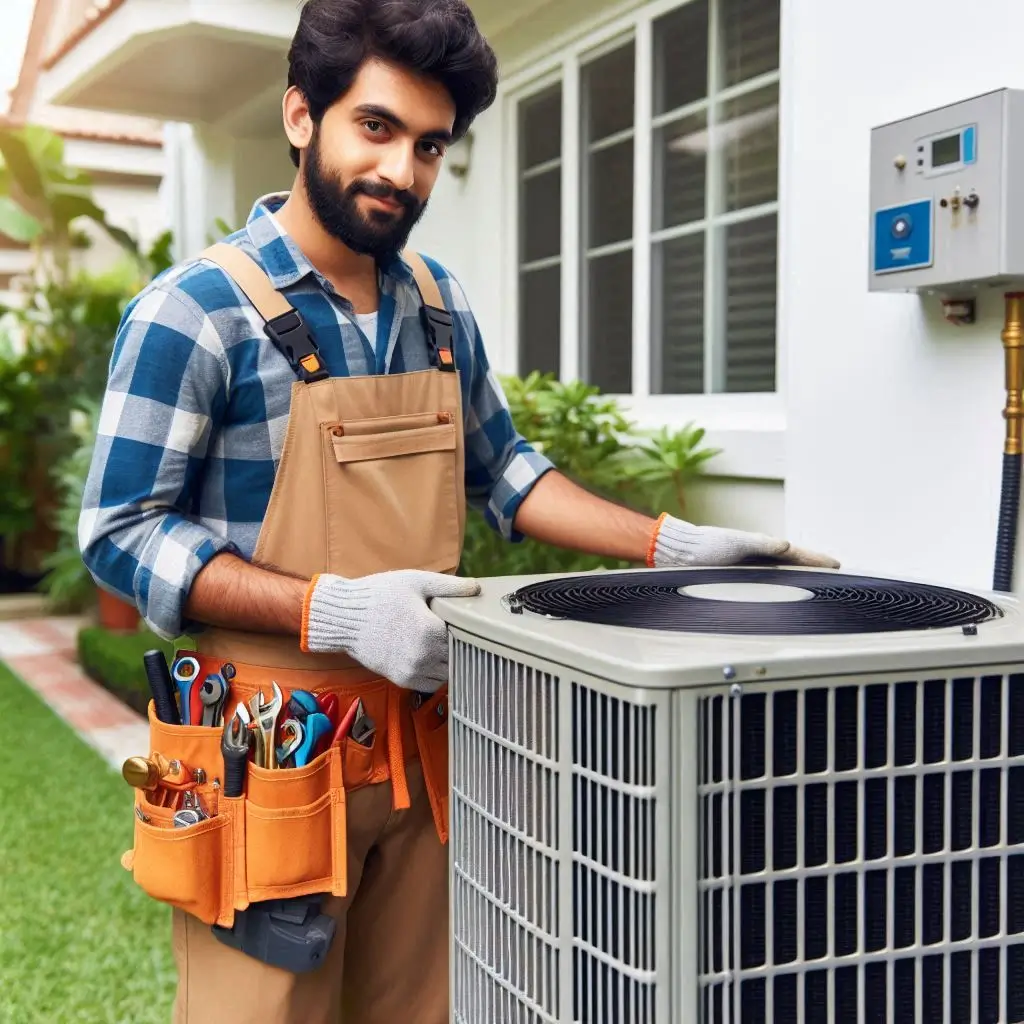
Changing Filters and Cleaning Air Ducts
A clogged air filter or dirty air ducts can drastically reduce airflow, forcing your AC to work harder and increasing the risk of a breakdown. Regular filter replacements and duct cleaning are simple yet effective ways to maintain your air conditioner’s efficiency.
How Often Should You Change AC Filters?
Every 1-2 months for homes with pets or high dust levels.
Every 3 months for standard residential use.
Monthly during peak summer and winter seasons when the HVAC system runs continuously.
Why Clean Air Ducts Matter:
- Prevents mold growth – Moisture buildup in ducts can lead to mold, which affects air quality.
- Reduces allergens and dust – Clean ducts help minimize respiratory issues.
- Enhances cooling efficiency – Unobstructed airflow keeps your AC running smoothly.
DIY vs. Professional Air Duct Cleaning
DIY Maintenance: Regularly vacuuming vents and replacing filters can help reduce dirt buildup.
Professional Cleaning: A licensed HVAC technician should inspect and clean your ducts every 3-5 years for optimal performance.
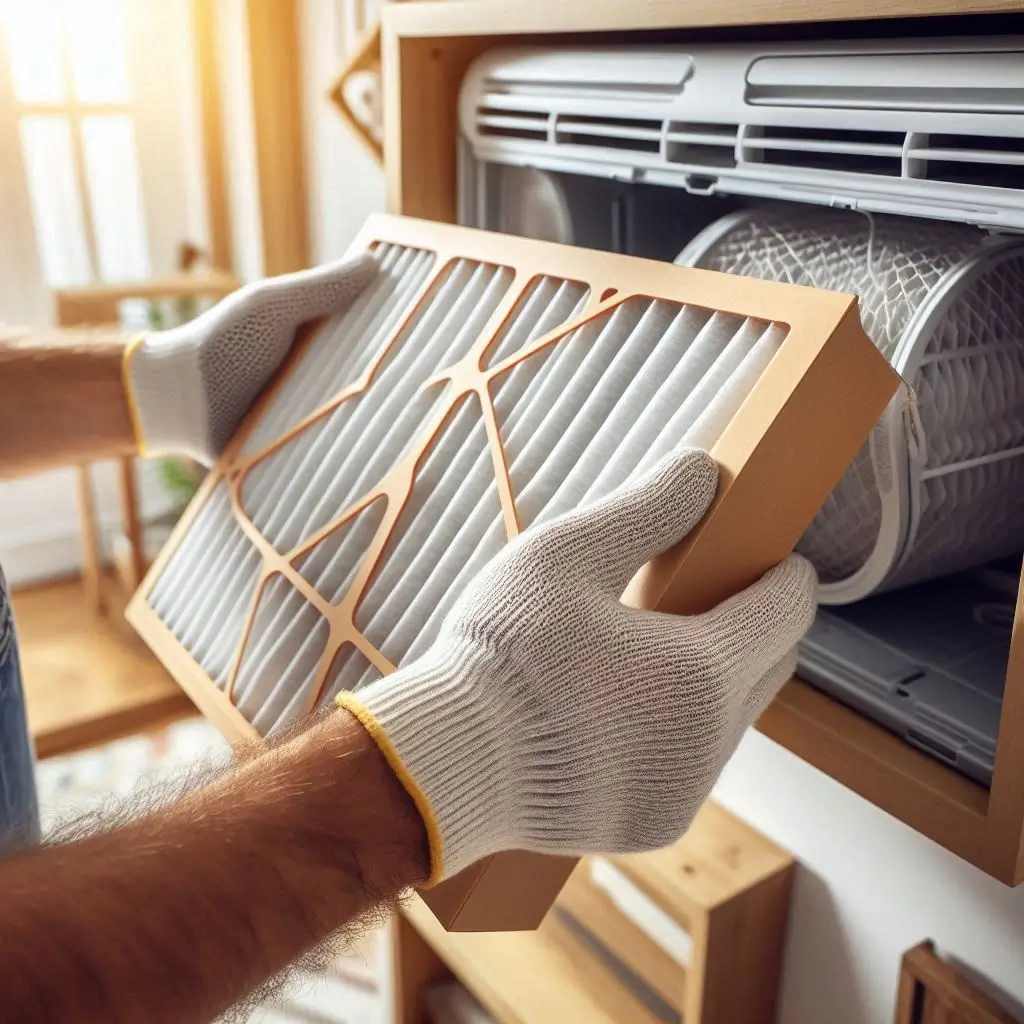
Identifying Warning Signs Before a Breakdown
Recognizing early signs of AC problems can help you take preventive action before a complete system failure occurs. Addressing these red flags promptly can save you from expensive emergency repairs.
Common Warning Signs That Require Immediate Attention:
Weak Airflow or Inconsistent Cooling – Could indicate clogged filters, duct issues, or compressor problems.
Unusual Noises (Grinding, Buzzing, or Banging Sounds) – May signal a failing motor, loose parts, or electrical issues.
Frequent Short Cycling – If your AC turns on and off repeatedly, it could be due to thermostat malfunctions or an overheating compressor.
Strange Odors (Burning or Musty Smell) – A burning smell may indicate electrical issues, while a musty odor could mean mold inside the ducts.
Water Leaks or Ice Buildup – Could be due to refrigerant leaks, clogged drain lines, or frozen evaporator coils.
What to Do If You Notice These Signs?
Turn off your AC to prevent further damage.
Check the thermostat settings and ensure they are correct.
Call a professional technician immediately to diagnose the issue.
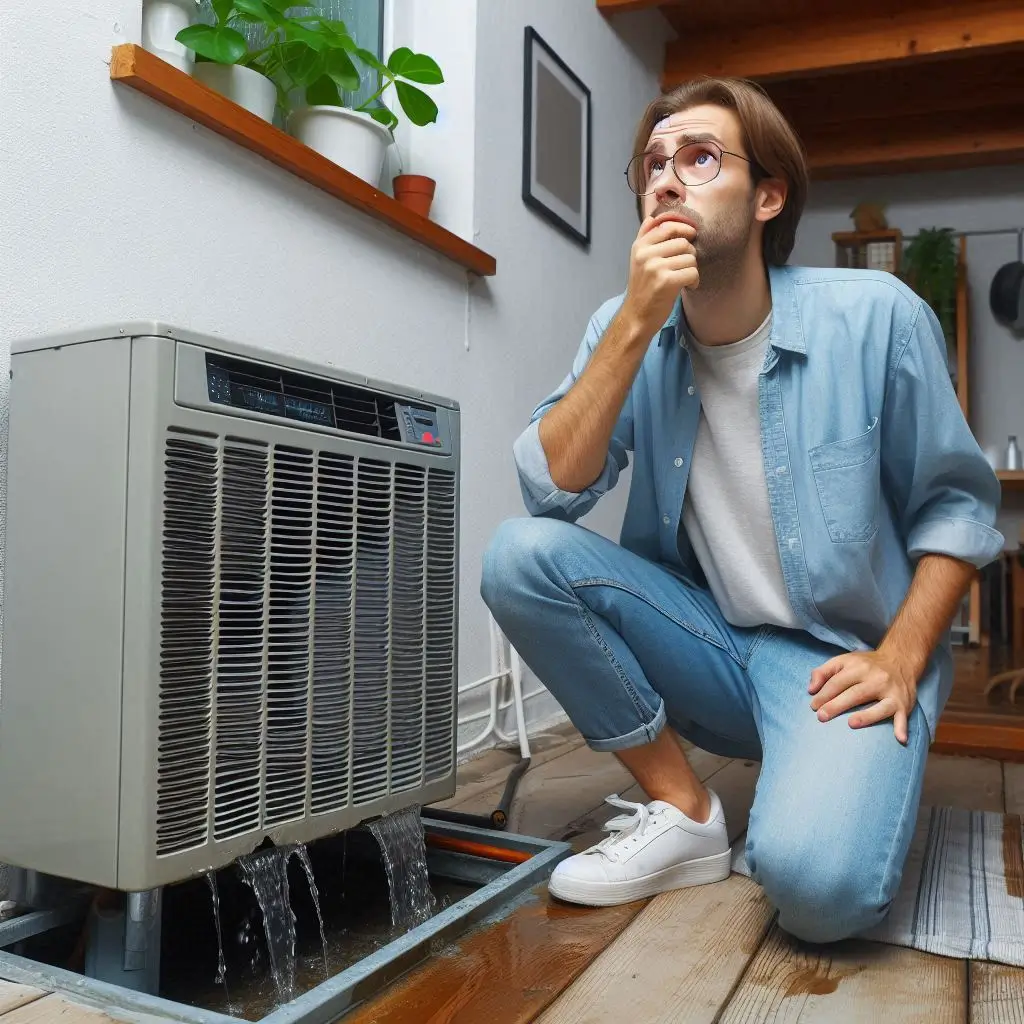
Cost of 24 Hour Air Conditioning Repair Services
When an air conditioner breaks down unexpectedly, especially during extreme weather, 24-hour emergency AC repair services become essential. However, the cost of these urgent repairs can vary significantly based on several factors. Understanding the pricing structure can help homeowners prepare for unexpected HVAC expenses and make informed decisions when facing an emergency repair situation.
Factors That Affect Emergency Repair Costs
The cost of 24-hour AC repair services is influenced by multiple factors. Emergency repairs typically cost more than standard maintenance because they require immediate service, often outside regular business hours.
1. Type of AC Problem
The complexity of the issue significantly impacts repair costs.
- Minor repairs: Replacing a capacitor or thermostat adjustment may cost $100–$300.
- Major repairs: Fixing refrigerant leaks, compressor failure, or motor issues can range from $500–$2,000.
2. Time of Service
- After-hours service (nights & weekends): Emergency services at odd hours may include an additional service call fee ($100–$250).
- Holidays & peak seasons: Prices tend to be higher during heatwaves or cold snaps due to high demand.
3. AC Unit Age and Brand
Older units or high-end brands require specialized parts, increasing costs.
- Older units: Harder to find parts, leading to higher expenses.
- Premium brands: May require proprietary parts or specialized technicians.
4. Location & Travel Costs
The distance a technician must travel impacts pricing. Remote or rural areas often incur additional trip charges.
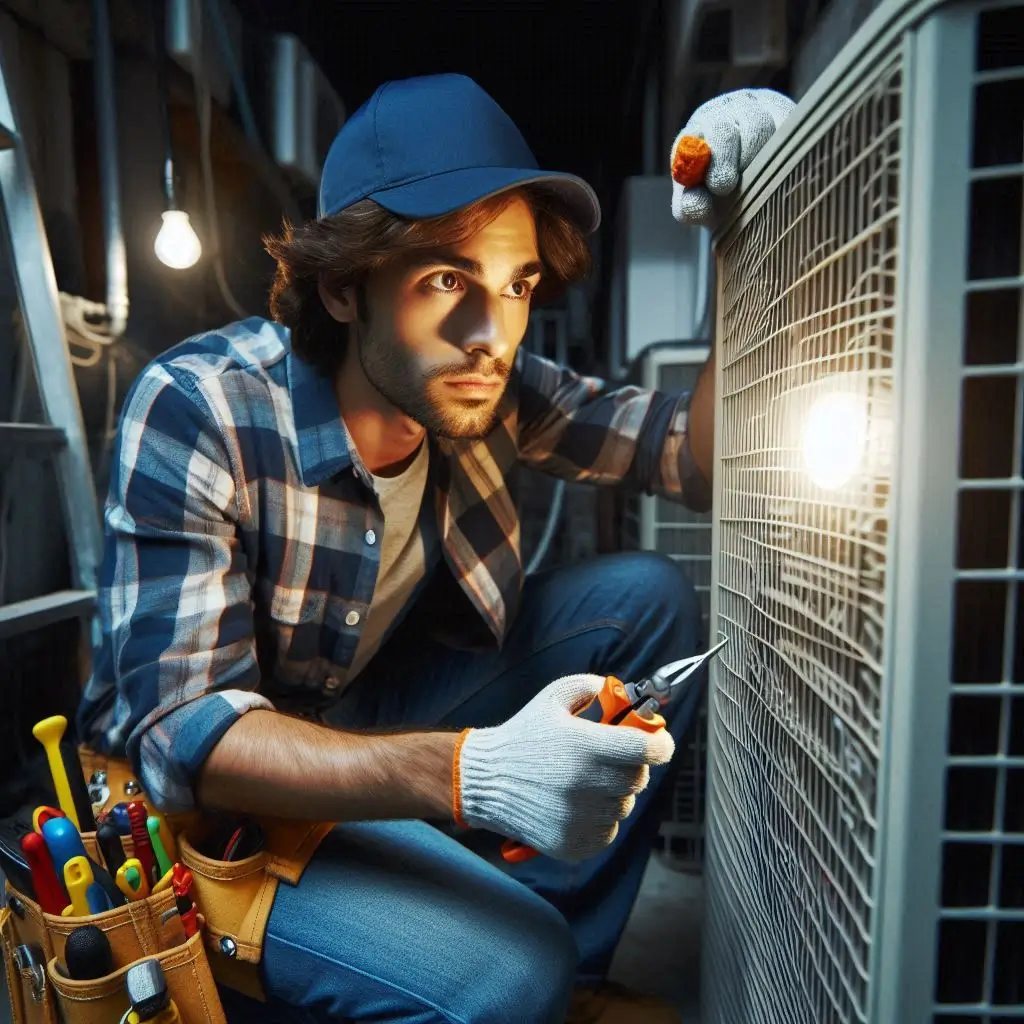
Comparing Prices for Night and Weekend Repairs
The time of day and day of the week can significantly affect how much you pay for emergency AC services.
Standard vs. Emergency AC Repair Costs
| Service Type | Standard Hours Cost | After-Hours & Weekend Cost |
|---|---|---|
| Service Call Fee | $50 – $100 | $100 – $250 |
| Capacitor Replacement | $100 – $300 | $200 – $500 |
| Refrigerant Recharge | $200 – $600 | $400 – $1,000 |
| Compressor Repair | $500 – $1,500 | $1,000 – $2,500 |
How to Save on Emergency AC Repairs
✔ Enroll in HVAC Maintenance Plans – Some companies offer priority service & discounts to members.
✔ Know Your Warranty Coverage – Check if the manufacturer covers emergency repairs.
✔ Consider Temporary Cooling Solutions – A portable AC unit or fan can help until regular service hours.
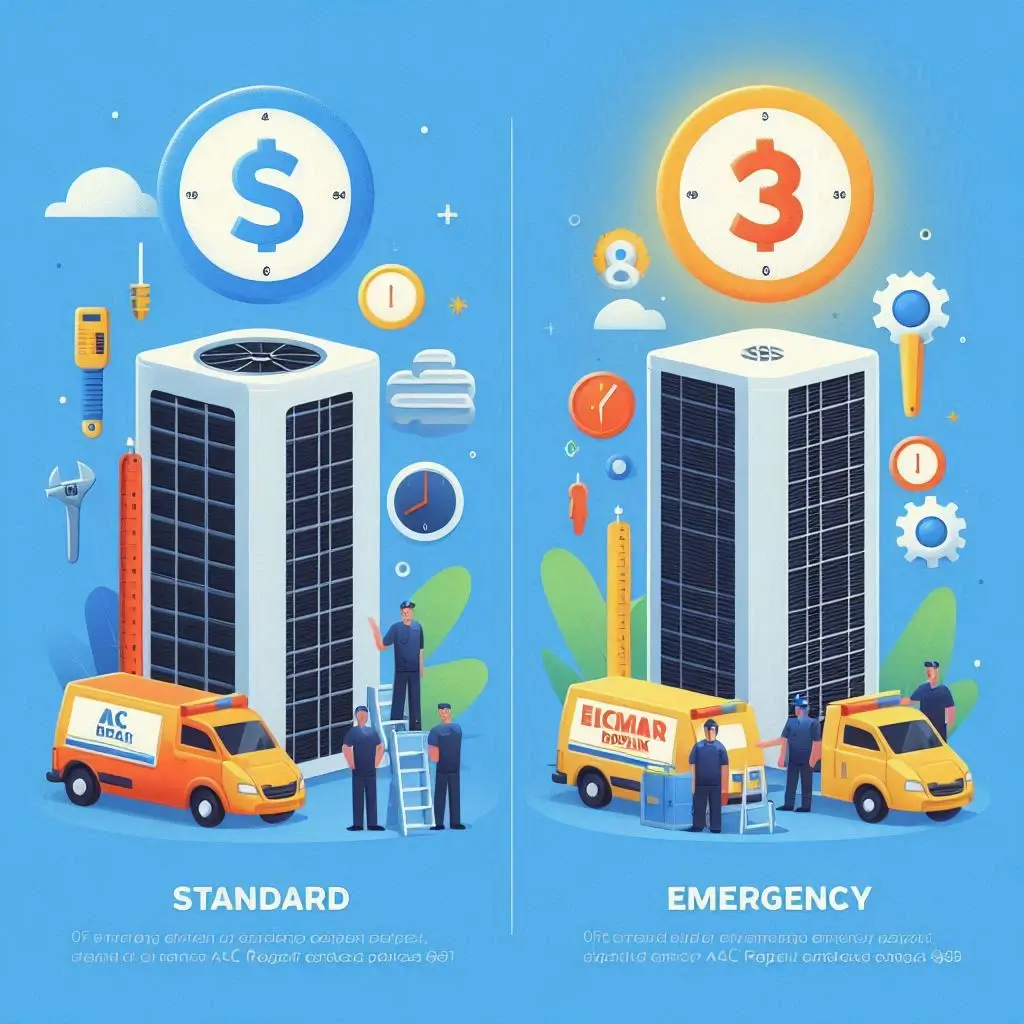
Is Emergency AC Repair Covered by Warranty?
Many homeowners wonder if emergency AC repairs are covered under warranty. The answer depends on the type of warranty and the repair issue.
Types of AC Warranties
- Manufacturer’s Warranty – Covers defective parts, typically for 5–10 years. Does NOT cover labor costs for emergency repairs.
- Extended Warranty – May include labor costs but usually applies only to specific repairs during business hours.
- Home Warranty (Third-Party Service Plans) – Covers HVAC breakdowns, but may not include 24-hour emergency service fees.
What Is Usually Not Covered?
- Damage due to lack of maintenance (dirty filters, clogged coils).
- Wear & tear beyond warranty period.
- After-hours or holiday emergency repair fees.
How to Check Your Warranty Coverage
✅ Find your warranty documents (from manufacturer or HVAC installer).
✅ Call the warranty provider to confirm coverage.
✅ Ask about exclusions before requesting emergency service.

Frequently Asked Questions About 24-Hour Air Conditioning Repair
When your air conditioner breaks down unexpectedly, especially during extreme heat, you need immediate solutions. Below are some frequently asked questions about 24-hour air conditioning repair to help homeowners understand the process, costs, and what to expect when requesting emergency services.
How Much Does Emergency AC Repair Cost?
The cost of 24-hour AC repair varies depending on multiple factors, including the type of repair, location, and time of service. Emergency repairs often have higher service call fees, especially for after-hours or weekend services.
Breakdown of Emergency AC Repair Costs:
| Service Type | Regular Cost | After-Hours Cost |
|---|---|---|
| Service Call Fee | $50 – $100 | $100 – $250 |
| Refrigerant Leak Repair | $200 – $1,500 | $400 – $2,000 |
| Compressor Replacement | $800 – $2,500 | $1,500 – $4,000 |
| Electrical Issues Repair | $150 – $600 | $300 – $1,200 |
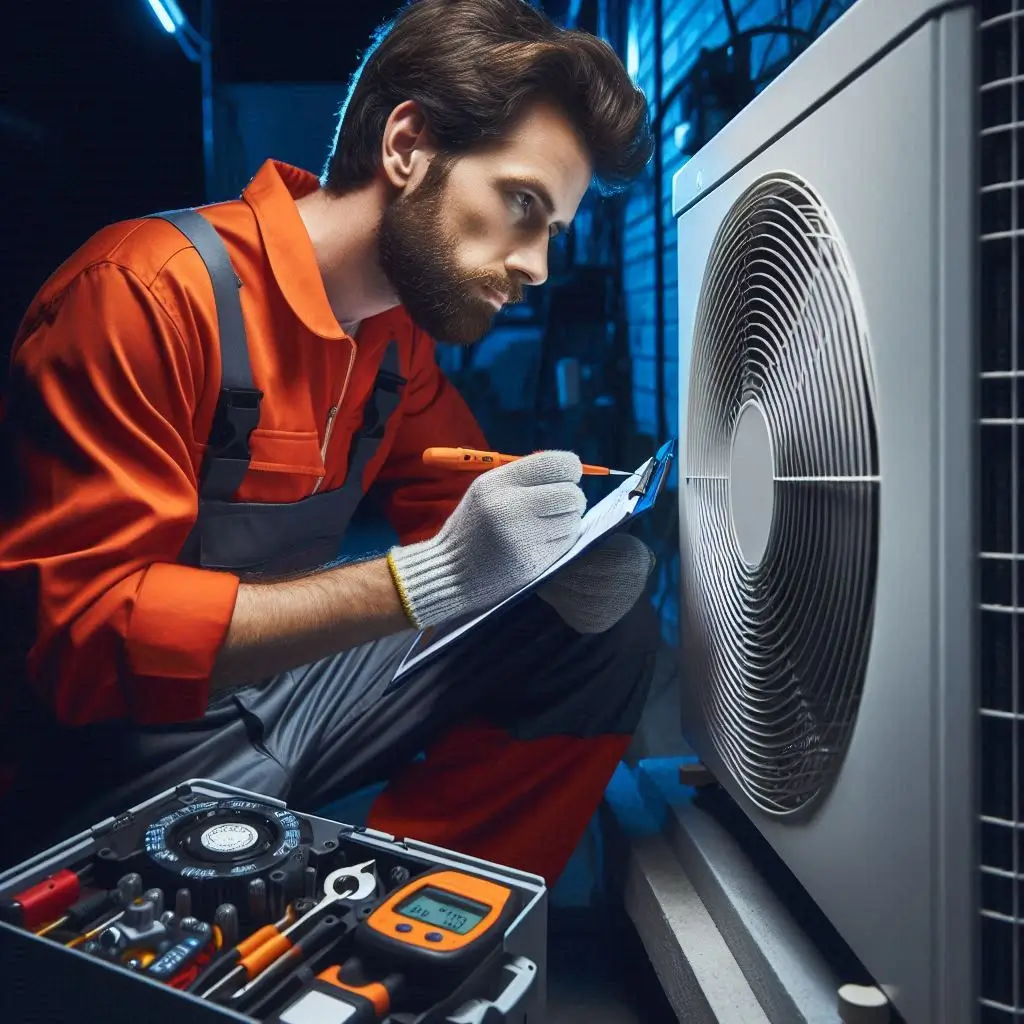
How Long Does It Take for an Emergency AC Technician to Arrive?
Factors That Affect Response Time:
- Location: Urban areas may have faster service, while remote locations might experience longer wait times.
- Time of Request: Nighttime or holiday calls could have limited technician availability.
- Company Availability: Some HVAC companies guarantee arrival within 1–2 hours, while others may take longer.
Tips for Faster Service:
✔ Call local companies with 24/7 emergency support.
✔ Mention the urgency of your issue (e.g., refrigerant leak or complete system failure).
✔ If possible, have a backup portable AC unit or fan for temporary relief.
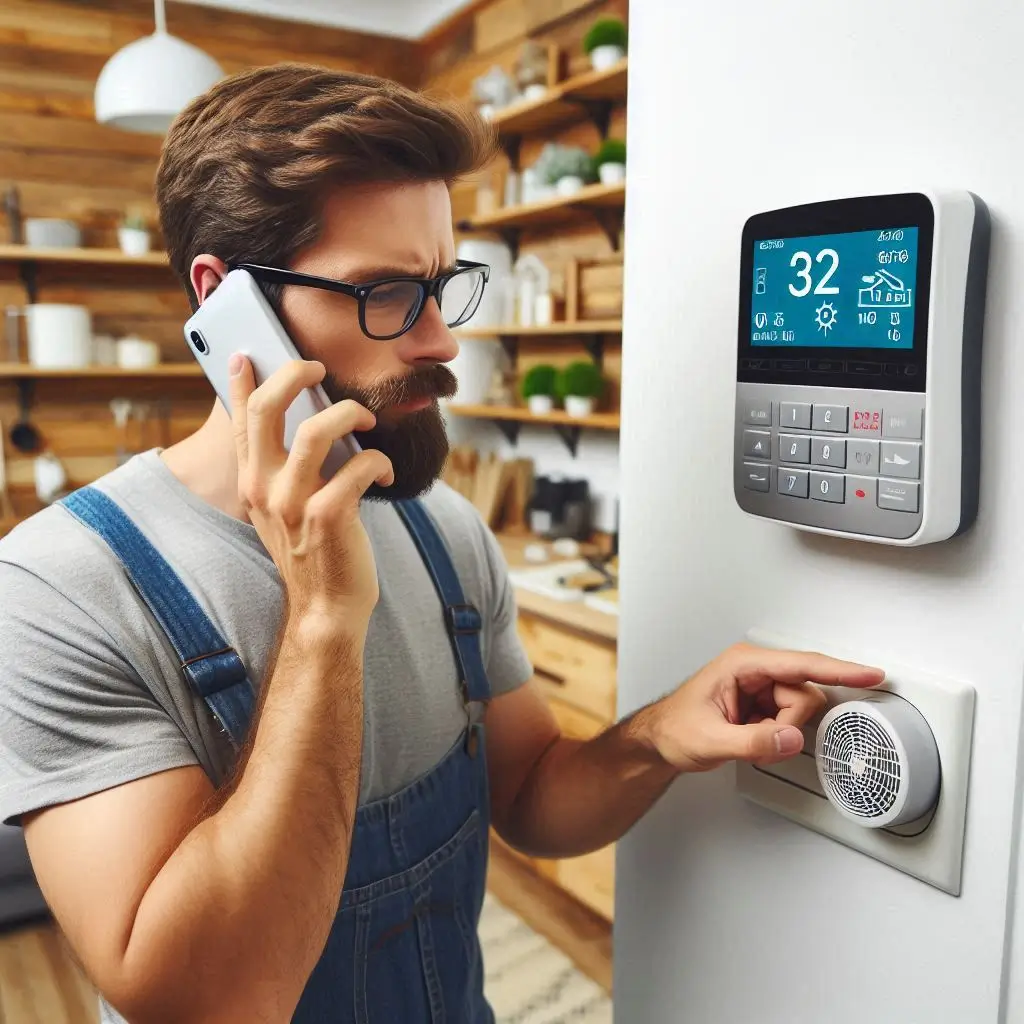
What Should I Do While Waiting for Emergency AC Repair?
While waiting for the technician to arrive, you can take some steps to minimize damage and maintain comfort in your home.
Immediate Actions:
- Turn Off the AC – If the system is making strange noises or leaking, shut it down to prevent further damage.
- Check the Thermostat and Circuit Breaker – A simple reset might solve the issue without needing professional repair.
- Improve Ventilation – Use ceiling fans, portable fans, or open windows to keep air circulating.
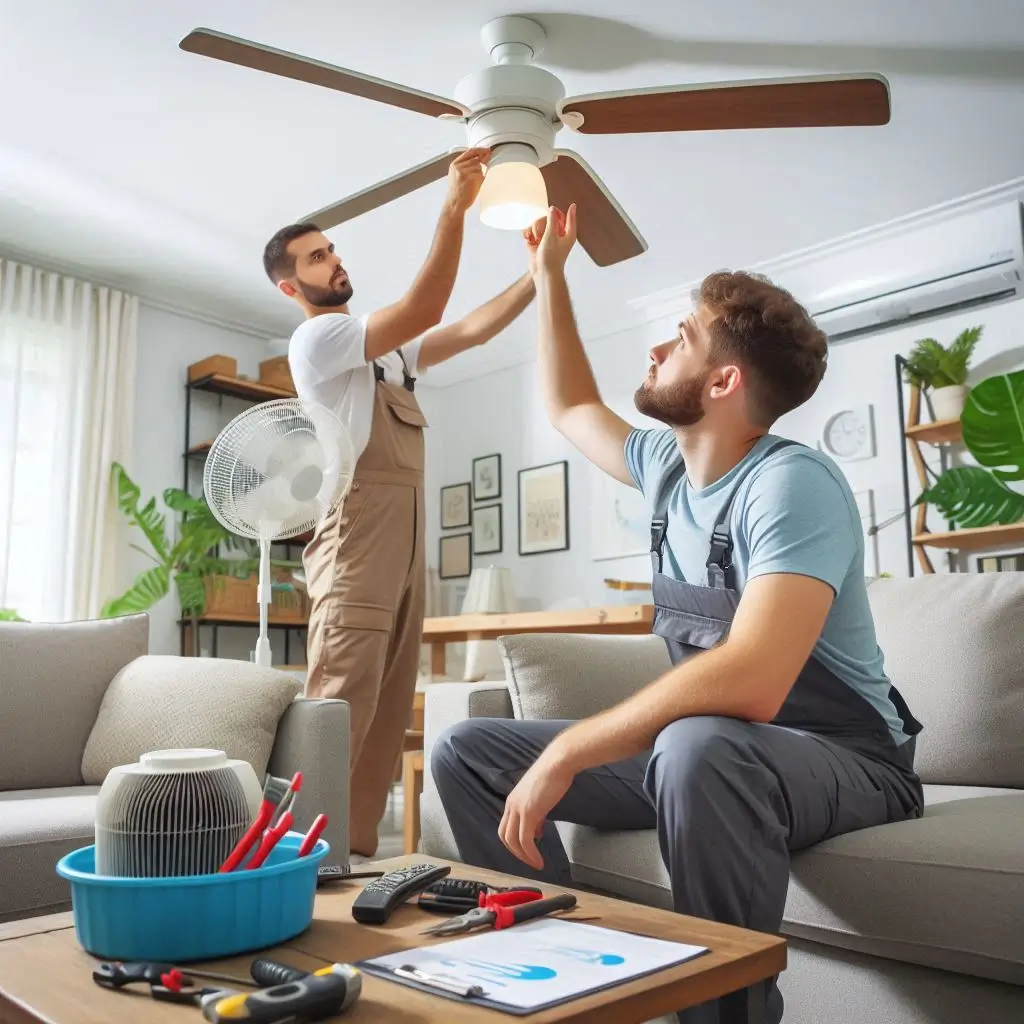
Can I Prevent the Need for Emergency AC Repairs?
Yes! Preventive maintenance is the best way to avoid sudden AC breakdowns. Here’s how:
Preventive Maintenance Tips:
✔ Schedule regular AC tune-ups (at least twice a year).
✔ Replace air filters every 1–3 months to ensure proper airflow.
✔ Check for warning signs, such as unusual noises, weak airflow, or high energy bills.
✔ Keep outdoor AC units clean from dust, leaves, and debris.
Investing in an HVAC maintenance plan can also help you save on unexpected repair costs and get priority service in emergencies.
Is Emergency AC Repair Covered by Warranty?
Warranty coverage depends on your AC manufacturer, extended service plan, or home warranty provider.
Types of Warranty Coverage:
- Manufacturer’s Warranty: Covers defective parts but not labor costs.
- Extended Warranty: May cover labor but often applies only to specific repairs.
- Home Warranty Plans: Might include emergency AC repairs but could have service call fees.
Before requesting emergency service, check your warranty terms to avoid unnecessary out-of-pocket expenses.
Conclusion
Having access to 24-hour air conditioning repair is essential for homeowners facing unexpected AC breakdowns, especially during extreme weather. Understanding common AC emergencies, knowing what to do while waiting for a technician, and choosing a reliable emergency repair service can help minimize discomfort and prevent further damage. While emergency repairs can be costly, preventive maintenance—such as regular tune-ups, filter changes, and system inspections—can reduce the risk of sudden failures. By staying proactive and working with trusted HVAC professionals, you can ensure your cooling system remains efficient and reliable year-round. If you ever experience an AC emergency, act quickly and contact a licensed 24-hour AC repair service to restore comfort to your home.

